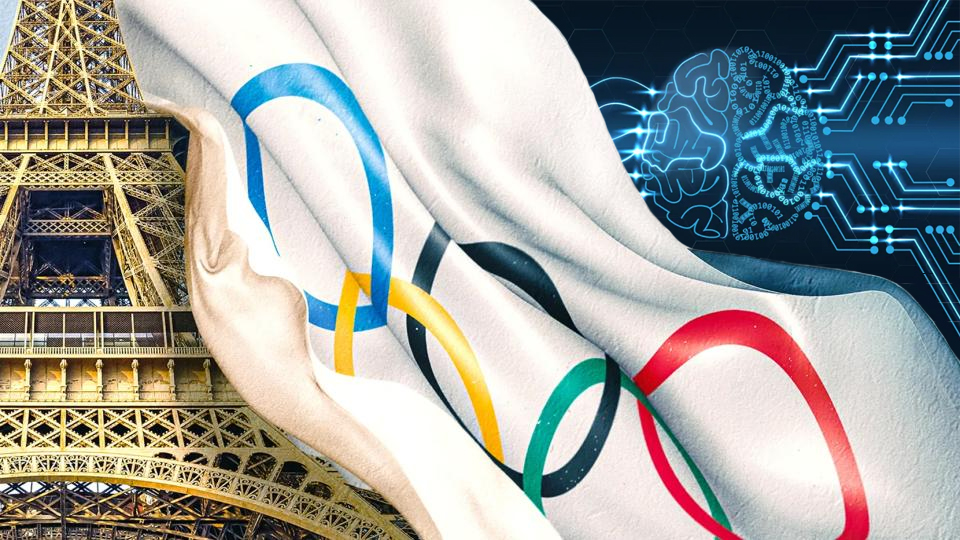Artificial Intelligence (AI) has become an integral part of
numerous industries, and the world of sports is no exception. The Olympic
Games, currently being held in Paris is the pinnacle of athletic competition
across 32 different sports. The games organisers have increasingly used AI
technology to enhance various aspects of the event. From athlete performance
and fan experience to logistics and security, AI is revolutionizing the way the
Olympics are organized and experienced. This article delves into the
multifaceted role of AI in the Olympics and its profound impact on the games.
Enhancing Athlete Performance
AI’s most significant contribution to the Olympics is in the realm of athlete performance. Training regimens, once based primarily on coaches’ intuition and athletes’ experiences, are now augmented by data-driven insights. AI-powered tools analyse huge amounts of data; including biometrics, training loads and performance metrics in order to provide personalized training programs which aim to peak an athletes performance at the games… hopefully resulting in a medal.
For instance, machine learning algorithms can identify patterns in an athlete’s performance data to predict potential injuries and suggest preventive measures. Wearable technology, embedded with AI sensors, tracks athletes’ movements and physiological data in real-time. This data helps coaches and athletes understand their performance intricacies and make informed decisions to optimize training and recovery.
AI is also used in video analysis to break down competitors’ techniques, allowing athletes to study their opponents meticulously and develop effective strategies. This advanced level of preparation can be the difference between winning and losing in high-stakes competitions. We’ve seen various examples of this including the recent Euro 2024 football tournament where the England team used video and AI to record, analysis and predict where opposition players taking penalties would aim. This allowed Jordan Pickford to have an extremely high spot kick save success rate during the tournament, helping to progress England to the final.
Improving Fan Experience
AI is transforming how fans engage with the Olympics. With millions of viewers worldwide, delivering a personalized and immersive experience is crucial. AI-driven recommendation systems tailor content to individual preferences, whether it’s highlights of favourite sports, athlete profiles or real-time statistics.
Virtual reality (VR) and augmented reality (AR) powered by AI are enhancing the viewing experience, offering fans an unprecedented level of immersion. Spectators can experience events from different angles, virtually walk through Olympic venues or even feel like they are part of the action from the comfort of their homes.
Increasingly, AI chatbots and virtual assistants provide real-time information and answer queries about schedules, results and trivia. These AI tools ensure that fans have instant access to information, enhancing their overall experience and engagement with the event.
Streamlining Logistics and Security
The logistical complexity of organizing the Olympics is immense and AI is playing a crucial role in streamlining these operations. AI-driven analytics optimize everything from transportation and accommodation to event scheduling and resource allocation. For example, predictive analytics can forecast crowd movements, helping organizers manage foot traffic and reduce congestion at venues.
AI is also enhancing security measures at the Olympics. Advanced facial recognition systems, powered by AI, ensure that only authorized personnel and spectators have access to secure areas. These systems can quickly and accurately identify individuals, reducing the risk of unauthorized entry and potential security threats.
Additionally, AI surveillance systems monitor vast areas in real-time, detecting unusual patterns and behaviours that might indicate security risks. This proactive approach enables security personnel to respond swiftly and effectively to any potential issues, ensuring the safety of all participants and spectators.
Supporting Fair Play
Ensuring fair play is a cornerstone of the Olympic Games and AI is aiding in this endeavour as well. AI technologies are being used to enhance the accuracy of judging and officiating. For instance, AI-powered systems can analyse movements in gymnastics or diving to provide precise scores, reducing human error and bias.
In sports like athletics and swimming, AI cameras and sensors track athletes’ movements to ensure accurate timing and detect rule violations such as false starts or lane infringements. These technologies uphold the integrity of the competition, ensuring that outcomes are determined solely by athletes’ performances.
The Future of AI in the Olympics
As AI technologies continue to evolve, their impact on the Olympics will undoubtedly grow. Future advancements could include even more sophisticated performance analysis tools, immersive fan experiences using AI-generated content as well as enhanced logistics and security systems. The integration of AI will make the Olympics more efficient, enjoyable and fair, setting new standards for global sporting events.
AI is revolutionizing the Olympics (and many more sporting events) by enhancing athlete performance, improving fan experiences, streamlining logistics, enhancing security and supporting fair play. As we look to future games in LA 2028 and beyond, the role of AI will only expand, bringing even more innovation and excitement to the world’s most celebrated sporting event…. might even bring robots competing…

Leave a Reply